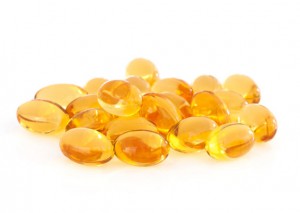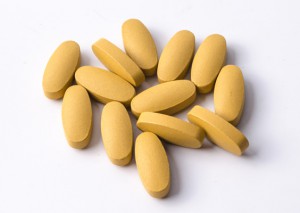This weeks Question: What do you know about telomeres? I’ve
heard that they hold the key to anti-aging and products with telomeres
can prevent wrinkles. But they are really expensive so I want an
honest opinion. Are they worth the money?
Answer: This is a BIG question and it deserves a BIG
answer. Telomeres are the tips of th DNA strands that control our
cells. They keep these protein chains from unraveling much the way the
plastic tips on shoe laces keep the laces intact. Studies have shown
that telomeres become shortened as we get older and the shortened
telomeres can’t protect the cellular DNA. When the DNA is damaged, the
cells can no longer reproduce and die off. Studies have shown that
people with diabetes, heart diseae and dementia have shortened
telemeres. The telomeres of wrinkled, sagging skin cells are also
shortened.A group of especially brilliant scientists won the Nobel Prize for their discovery of a body enzyme called telomerase which keeps telomeres long and strong. That’s the good news. The bad news? Telomerase actually helps cancer cells grow. So clearly adding telomerase either in supplements or in skin care products is not a safe anti-aging strategy . Despite the cancer link there are products out there that offer to improve telomeres. There are supplements made from the Chinese herb Asparagus that a single study has shown to increase telomeres in humans. It costs at least $200 a bottle and although it makes drug like claims , its safety and efficacy have not been approved by the FDA.
In skin care products, its doubtful that the agents that are meant to stimulate telomeres actually can be absorbed by the skin to get into the DNA. But given the link between telomerase and cancer growth, lack of absorption is a good thing for you heath– if not your wallet.
Is there A Safe Way To Protect Telomeres?
So is there anything we can do to help telomeres stay long and healthy ? As it turns out the same healthy lifestyle factors including exercise, a diet rich in fruits and vegetables, virgin olive oil, and antioxidants maintain telomere health. At the same time, alcohol,smoking, stress and UV exposure damage and shorten telomeres. It just reinforces the importance of our lifestyle choices for all aspects of health and fitness.Trying to separate effective and affordable heath strategies from commercial exploitation of science is like playing a game of whack a mole. Every time I can clarify the risks or benefits of promises for things like acrtic berries,bee venom or in this care, telomeres, another entrepreneur comes up with a new and expensive quick fix for beauty and health. There are solid, safe options out there but they are just not a quick fix.
Are Telomeres The Key To Aging And Cancer?
Inside the nucleus of a cell, our genes are arranged along twisted, double-stranded molecules of DNA called chromosomes. At the ends of the chromosomes are stretches of DNA called telomeres, which protect our genetic data, make it possible for cells to divide, and hold some secrets to how we age and get cancer.
Telomeres have been compared with the plastic tips on shoelaces, because they keep chromosome ends
from fraying and sticking to each other, which would destroy or scramble an organism's genetic information.
Yet, each time a cell divides, the telomeres get shorter. When they get too short, the cell can no longer divide; it becomes inactive or "senescent" or it dies. This shortening process is associated with aging, cancer, and a higher risk of death. So telomeres also have been compared with a bomb fuse.
Yet, each time a cell divides, the telomeres get shorter. When they get too short, the cell can no longer divide; it becomes inactive or "senescent" or it dies. This shortening process is associated with aging, cancer, and a higher risk of death. So telomeres also have been compared with a bomb fuse.
or below
http://www.news-medical.net/life-sciences/Telomere-What-are-Telomeres.aspx
Mitochondrial Function: The Other Half Of The Anti-Aging Story
Telomere science changed everything we knew about aging. But today, I want to talk to you about the other half of the anti-aging equation.
Maybe you already know by protecting your telomeres, you can slow — and even reverse — the aging process.
You see, your telomeres are like little countdown clocks that protect the DNA in your cells. They shorten with each cell division. And the shorter they get the faster you develop the signs of aging. So by protecting and nourishing them, you can literally turn back the years.
Dr.Al Sears the first doctors to put telomere science to the test. And for years, has been helping patients measure, protect and lengthen their telomeres.
also discovered that telomeres are only HALF the story when it comes to aging. Let me explain…
Telomeres protect the DNA inside the nucleus of each cell in your body. But there is other DNA in each of your cells outside the nucleus.
You see, your cells also contain tiny organelles called mitochondria. These are the power plants that turn fuel into energy. And your mitochondria have their own DNA and their own impact on the aging process.
Mainstream medicine still ignores the anti-aging power of mitochondria. But in today’s episode , I’m going to show you how to boost mitochondria while at home.
But first, let’s look at why your mitochondria are so important…
Each of your cells has at least one of these tiny power plants. The average cell has 200. And cells for important organs, like your heart and brain, can have more than 10,000.
But here’s the problem: As you age, these tiny power plants become damaged and start to die off. And you lose your capacity to make energy.
The first thing that happens is that your cellular energy takes a dive. You feel tired and fatigued. But then they malfunction, and devastating diseases can follow:
- Schizophrenia and bipolar disease;
- Alzheimer’s and Parkinson’s disease;
- Epilepsy, migraines, and nerve pain;
- Loss of muscle control and balance;
- Heart disease and strokes;
- Fibromyalgia;
- Blindness;
- Diabetes;
- Hepatitis C and cirrhosis. 1
You see, today, we’re faced with “accelerated aging” because of environmental factors, such as cigarette smoke and ultraviolet rays from the sun. And its effect can age you prematurely.
But there are ways to support mitochondria…
The Sears Institute for Anti-Aging Medicine, helps it's patients prevent and repair damage to the mitochondria.And they do this not with Big Pharma meds, but with nutrients. Here are just four of the nutrients recommend that have been proven to support your mitochondrial function and boost energy.
1.CoQ10: Co-enzyme Q10 sparks your aging cell engines to make more energy. And it’s a potent free radical scavenger, soaking up oxidized molecules before they cause damage.
its recommend taking 50 mg of CoQ10 daily. Look for the ubiquinol form. It’s more powerful and much easier for your body to absorb
.
2. Acetyl-L-Carnitine: The amino acid L-carnitine plays a critical role in making energy in your cells. It transports fatty acids into the mitochondria. There they can be burned for fuel. It also carries toxic waste out before it can do damage. But as you age, carnitine levels in your tissues drop. That’s why you need acetyl-L-carnitine (ALC). Your body converts L-carnitine to ALC. And studies show when your mitochondria slow down, ALC can fire them up again. Studies also show ALC reverses the malfunction in mitochondria as you age. ALC can also improve brain performance and increase neurotransmitters.
The best source of L-carnitine is grass-fed red meat. But you can also supplement. by taking at least 500 mg of ALC every day on an empty stomach. Look for a formula with only L-carnitine and not D, L-carnitine. D-carnitine is synthetic.
3. N-Acetyl-Cysteine (NAC): This amino acid is also a powerful antioxidant. You see, NAC helps make glutathione, the body’s most powerful antioxidant. Glutathione is the main line of defense for mitochondria. It helps prevent and repair oxidative damage, thus protecting your mitochondria.6,7And there’s another reason I recommend NAC to my patients. Studies show it protects your telomeres from oxidative damage.8 So it throws a one-two anti-aging punch. I advise supplementing with 500 mg per day.
4. Rhodiola Rosea: This tough, little yellow flower is native to the arctic mountains of Eastern Siberia. And has been seen its power to energize patients. In just a few months, they are visibly younger and stronger. And they say they feel that way, too.
Research proves what been seen in patients. Lab Rats given rhodiola were able to swim 25% longer before becoming exhausted. That’s because the herb helped trigger energy synthesis in the mitochondria.
Rhodiola can also energize people. Just one 200 mg dose helped people in one study improve their exercise endurance. In another study, students taking 100 mg of rhodiola every day improved their capacity to work. Their learning ability increased by 61% and their fatigue levels dropped by 30%.11
You can find Rhodiola tea in your local health food store. Or you can take it in capsule form. It’s also called golden root or roseroot. But make sure you get a formula with enough of the herb’s active compounds. Look for an extract standardized to contain at least 3% rosavins and 1% salidroside. That’s the same ratio found in the natural root.
I recommend taking 200 mg a day on an empty stomach, preferably in the morning because rhodiola stimulates your brain.
Here’s what you can do right now to activate telomerase and grow your telomeres.
- Eat More Fruits and Vegetables. Diets lower in refined carbohydrates and higher in fresh fruits and vegetables are linked to longer telomeres.
Eating more magnesium-rich foods like leafy greens is linked to longer telomeres. The magnesium preserves and repairs DNA. Boost your magnesium levels by eating more kale, spinach, Swiss chard and seaweed. Other good choices include quinoa, lentils, almonds, sesame seeds, avocado, spirulina, and dark chocolate.

- Exercise. Studies show people who do little or no
exercise have the highest risk of short telomeres. A study of 2,401
twins found vigorous exercise can lead to telomeres that act nine years
younger.

- My PACE exercise program is the only system that specifically
addresses the challenges of aging. It lets you get just the right amount
of exertion to give you anti-aging benefits. And it takes as little as
12 minutes per day.
- Reduce Your Stress. I often recommend meditation to
my patients. It’s one of the best ways to reduce stress. And it can
also turn on telomerase activity. In one study of 39 caregivers, half
listened to “relaxation” music. The other half practiced meditation for
just 12 minutes a day. After only eight weeks, telomerase activity in
the meditation group jumped 43%. The relaxation group went up a measly
3.7%.

- Raise Your HDL Levels. One of the best ways to
maintain your telomeres is simply raise your HDL cholesterol as high as
you can. In one study, people with the highest HDL had the longest
telomeres.
An easy way to raise your HDL is to take a special form of vitamin E
called tocotrienols. Vitamin E is actually a group of eight nutrients,
four tocopherols, and four tocotrienols. Studies show that tocotrienols
give your HDL a huge boost. Look for a tocotrienol supplement with as
much gamma and delta tocotrienols as you can.

- Boost Your Folic Acid. Folate or folic acid is one
of the B vitamins. Studies show men with the highest folic acid levels
have longer telomeres than those with low folate.
Folate works by counteracting the effects of the amino acid
homocysteine. High levels of homocysteine in your blood can triple the
speed at which your telomeres shorten.
I recommend getting 800 mcg of folic acid every day for your telomeres. Calf’s liver is one of the richest sources with 215 mcg in just three ounces. Dairy, poultry, meat, eggs, and seafood are other good choices. Among vegetables, dark leafy greens are a good source. Try spinach, broccoli, asparagus and Brussels sprouts.

You can also take a folic acid supplement. But don’t overdo it. Too much folic acid can hide the symptoms of a vitamin B12 deficiency.
- Take a Potent Antioxidant. Raising the level of
vitamin C in your cells could slow down the shortening of telomeres up
to 62%.One study showed that vitamin C also stimulated telomerase
activity in the formation and regeneration of stem cells.

To help reverse aging, I recommend taking 5,000 mg to 8,000 mg every day. Be sure to divide that amount into multiple smaller doses throughout the day.
For Dr. Sears Anti-aging catalog of supplements CLICK HERE!
Get free health and beauty tip delivered right to your inbox join our monthly news letter:






No comments:
Post a Comment
no comments allowed
Note: Only a member of this blog may post a comment.